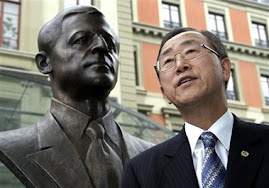Credits
The international community’s response to the crisis in Darfur has been slow, weak, piecemeal, and wholly inadequate. By standing in for Human Rights First’s Six Part Plan for Peace in Darfur, you are joining tens of thousands of other concerned global citizens who want to see the violence in Darfur end now. Our plan identifies six elements for ending the violence in Darfur: human security, the humanitarian effort, the peace process, political will, regional security, and foundations for the future. In the coming weeks and months, we will reach out to you at key moments to support action leading to an enduring peace in Darfur. For example, we will be releasing a report this fall that examines the close and problematic relationship between China and Sudan. China’s increasing presence and expanding economic interests in Sudan give it leverage with the Sudanese government in helping ensure peace in Darfur. We will ask you to raise your voices to make specific demands on China.Stand in for the victims of mass atrocities in Darfur and help us to build a lasting peace in western Sudan.
When you sign up, you will join 34,817 others who are symbolically representing an individual victim who has been killed, harmed or displaced in Darfur. Won’t you join us in supporting a comprehensive plan for peace in Darfur? (...).
Link,http://www.humanrightsfirst.org/international_justice/darfur/voices/index.aspx?source=flash, consultado a 25 de Julho de 2007.










